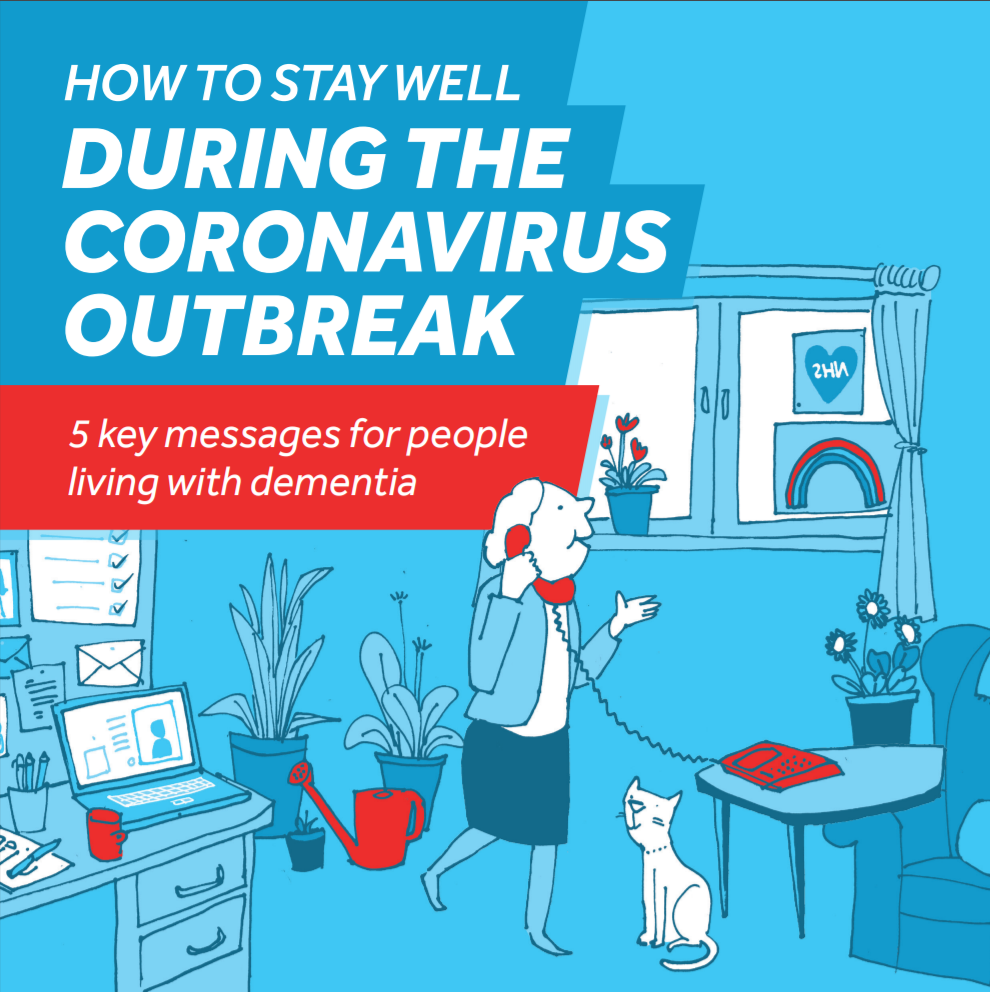Five tips to support people with dementia and carers while in lockdown
Lockdown and social distancing are essential to help combat COVID-19, but adjusting can be difficult – especially for people living with dementia.
That’s why researchers have developed five simple tips, designed to help make things more manageable for anyone who currently lives with dementia or cares for someone who does.
The project is led by Professor Linda Clare, of the University of Exeter Medical School, and part-funded by the National Institute for Health Research (NIHR).
The new leaflet has been created using the latest robust research and with the input of people affected by dementia.
Providing practical advice
The guidance gives practical and self-help tips on five key points:
- Staying safe and well
- Staying connected
- Keeping a sense of purpose
- Staying active
- Staying positive
Each of the five tips is informed by concerns expressed by people with dementia through partner networks such as Alzheimer’s Society, Innovations in Dementia and the DEEP network.
This advice is also possible in part thanks to our wonderful Join Dementia Research volunteers. The guidance builds on research from the NIHR-funded IDEAL programme, a study which many people participated in through Join Dementia Research.
The results of the IDEAL study highlighted social isolation as one of the key factors that led to feelings of loneliness in people with dementia, even before the outbreak of Coronavirus.
Researchers will continue to conduct phone interviews with IDEAL participants throughout the current crisis, to gather information about their experiences and concerns, and to ensure that the renewed guidance remains relevant.
In addition, a new study supported by Join Dementia Research and the NIHR is currently recruiting participants across the UK to investigate how COVID-19 closures are affecting people with dementia and their carers.
Overcoming isolation
“People with dementia and their family carers are disproportionately affected by social distancing, isolation and lockdown,” says Professor Linda Clare, who led on the creation of the new leaflet.
“Our research tells us that many people living with dementia and carers felt isolated and lonely before COVID-19, and now these feelings will be amplified.
“They can feel overwhelmed by the volume of generic advice and guidance available, and may be unsure how to select information that is relevant to them and their families and what information to trust.
“This project aims to provide robust information, developed with the crucial input of people affected by dementia, to offer support through this crisis.”
Professor Martin Rossor, National Director for Dementia Research at the NIHR, agrees.
“It is vital to ensure that people with dementia and their carers feel supported during this uncertain time,’ he says. “Research funded and overseen by the NIHR is providing some of the quality evidence that supports resources like these.”
The guidance is available online, and is being distributed online through a network of organisations who support people affected by dementia. It will also form part of Alzheimer’s Society’s support package via helplines and frontline staff.

